 | Andrei Rudskoi
Rector of Peter the Great St. Petersburg Polytechnic University
The Rector of Peter the Great St. Petersburg Polytechnic University Professor Andrei Rudskoi is an Academician of the Russian Academy of Sciences, a member of the Presidium of the Presidential Council for Economic Modernisation and Innovative Development of Russia, Chairman of the Council for Grants of the President of the Russian Federation for Government Support of Young Russian Scientists and the Leading Scientific Schools of the Russian Federation, member of Presidium of State Commission for Academic Degrees, member of the Commission for HR of the Presidential Council for Science and Education and an author of more than 250 scientific works, including 15 monographs and a number of patents and certificates of authorship.
Prof. Andrei Rudskoi is a prominent organizer of research and education as well as innovation activities. He is a co-chair of Coordination Council in the field of Education "Engineering, Technology and Technical Science", a member of a range of social Academies of the RF, a Chairman and member of Organizing Committees of a number of international conferences; he is involved on the regular basis as a guest speaker in these conferences. |
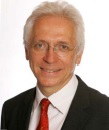 | François Rancy
Director, Radiocommunication Bureau
Mr. Rancy was elected by the ITU Plenipotentiary Conference in 2010 (PP-10) to the post of Director of the Radiocommunication Bureau (BR) of the International Telecommunication Union, and was confirmed in a second term during the ITU Plenipotentiary Conference in 2014 (PP-14).
As Director, Mr. Rancy is responsible for the management of the Radiocommunication Bureau which organises and co-ordinates the work of the Radiocommunication Sector whose aim is to ensure the rational, equitable, efficient and economical use of the radio-frequency spectrum and the geostationary satellite orbit.
Previous to taking up his duties at the ITU in January, 2011, he was Director General of the French Agence nationale des fréquences. Since 1995, Mr. Rancy has served as the head or deputy head for national delegations at many ITU conferences and meetings.
Mr. Rancy graduated from Ecole Polytechnique in 1977 and from Ecole nationale supérieure des télécommunications in 1979. |
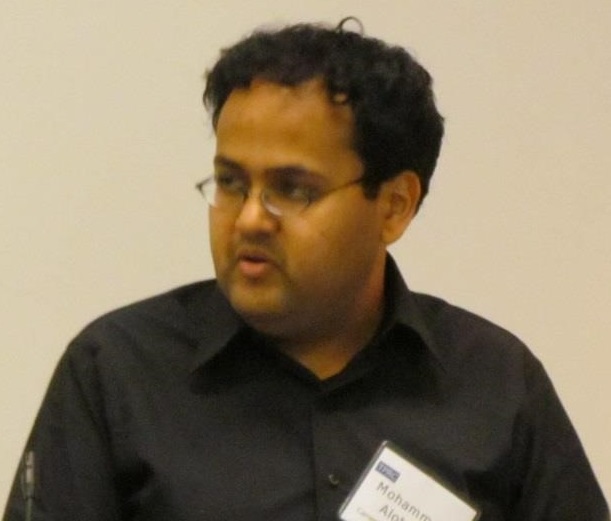 | Mohammed Alotaibi
General Manager of Frequency Spectrum at the Communication and Information Technology Commission, Saudi Arabia
Mohammed has over 15 years of experience in the field of spectrum policy. He has been involved in many national and international spectrum management activities including overseeing 4G spectrum auctions and reviewing spectrum policies for a number of countries in collaboration with ITU BDT.
He has academic and applied background in the area of quantitative policy analysis, technology and decision making, where he authored a number of papers and reports, taught courses, conducted workshops and provided consultancy for several organizations.
Mohammed holds a MSc and a PhD, in Engineering and Public Policy, from Carnegie Mellon University. He also holds a MSc from University of Pennsylvania and a BSc from King Fahd University of Petroleum Minerals and, both in Electrical Engineering. |
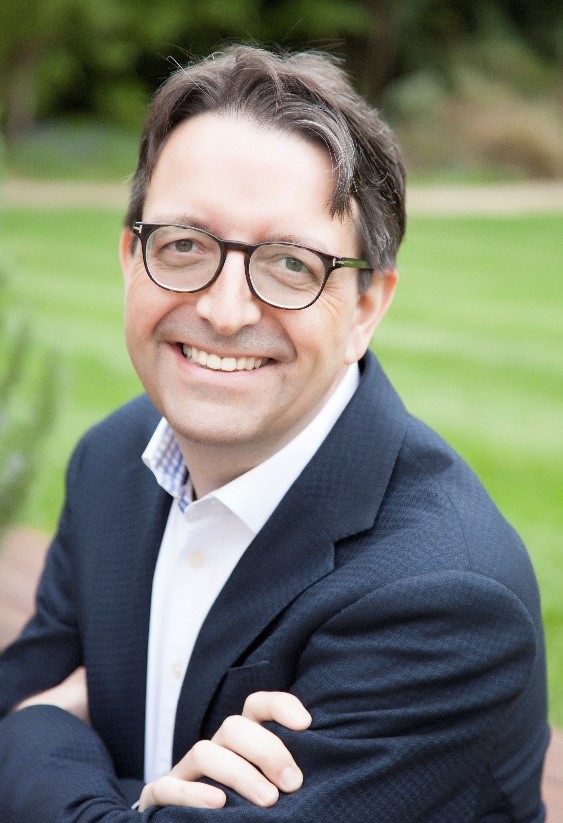 | Anthony Baker
CEO of Global Satellite Vu
Anthony Baker has over 20 years’ experience in the satellite business with roles in both commercial and government organisations; he is advising SES on spectrum management strategy. Also, Anthony is the CEO of Global Satellite Vu an earth observation company specializing in high speed information delivery.
Prior to joining O3b, Anthony held the position of acting-CEO and Chief Strategy Officer at Es’hailSat – The Qatar Satellite Company.
Formerly, he was Vice President at SES where he led a range of activities including space development, satellite procurement, spectrum management, and business development. He has also worked for AsiaSat in Hong Kong and NATO in Europe. |
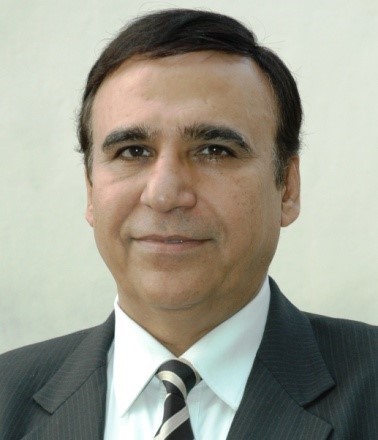 | Bharat Bhatia
Head of International spectrum and Regulatory team at Motorola Solutions’ Government Affairs, President of ITU-APT Foundation of India and founder President of the Core Group of Telecom Industries Association of India (CTIA)
Mr. Bhatia currently heads International spectrum and Regulatory team at Motorola Solutions’ Government Affairs and leads a global team of Spectrum and regulatory resources in Motorola Solutions. Mr. Bhatia is also the President of ITU-APT Foundation of India and founder President of the Core Group of Telecom Industries Association of India (CTIA). Earlier he was also the President of TEMA (Telecom Equipment Manufacturers Association of India) and a Vice President of Association of Telecom Industries of Singapore (ATIS).
Mr. Bhatia is an expert in spectrum management and works closely with many governments around the world, particularly in the area of spectrum and regulations for Public safety and mobile telecommunications (IMT). He chairs the APT Task Group on Public Safety and Disaster Relief communications as well as the ITU WP5D group on broadband public safety spectrum.
Mr. Bhatia regularly attends and speaks at various Global conferences and meetings and has been actively participating in various ITU and Asia Pacific telecommunity (APT) meetings including all World Radio Conferences during the last 18 years. He was a senior regulator with the Indian Government for 22 years as a spectrum regulator and Telecom policy specialist and was actively involved in opening of the Indian telecom to the private sector, including the first ever GSM metro licensing in India through a beauty contest in 1992 and a key architect of India’s first ever National Frequency Allocation Plan (NFAP) in 1981 and the first ever published NFAP in 2000.
Mr. Bhatia was the key originator of ITU World Radio Conference Resolution (WRC) 646 on PPDR approved at WRC-2003. He was also the key originator of the WRC Agenda under which Resolution 646 on PPDR was successfully revised to include 700 and 800 MHz bands at the WRC-15 He has made presentations on the issue of PPDR at numerous global and regional conferences around the world during last 15 years. He was also invited by the ITU to help develop the emergency communications plans in various AP countries.
Mr. Bhatia holds a B. E. degree from University of Delhi in Electronics and Telecommunications and is a fellow member of IETE, the Institution of Electronics & Telecommunications Engineers. Mr. Bhatia has completed a number of management courses from various institutes and universities including National University of Singapore and George Washington University. |
| | Yury Y. Borisov
Research Associate, Aspirant at Moscow Aviation Institute
Radiocommunication engineer with several years of experience in mobile broadband equipment development and integration projects. He actively participated in the development and testing of the Capacity Transfer Radio (CTR) technology project, has a number of publications on this topic.
Graduated from radio electronics faculty of Moscow Aviation Institute specializing at mobile communications technologies and now he continues education in the aspirancy. From 2013 to 2015 he was Senior Specialist at Intellect Telecom OJSC, then was Project Executive and now Research Associate at RTEC. |
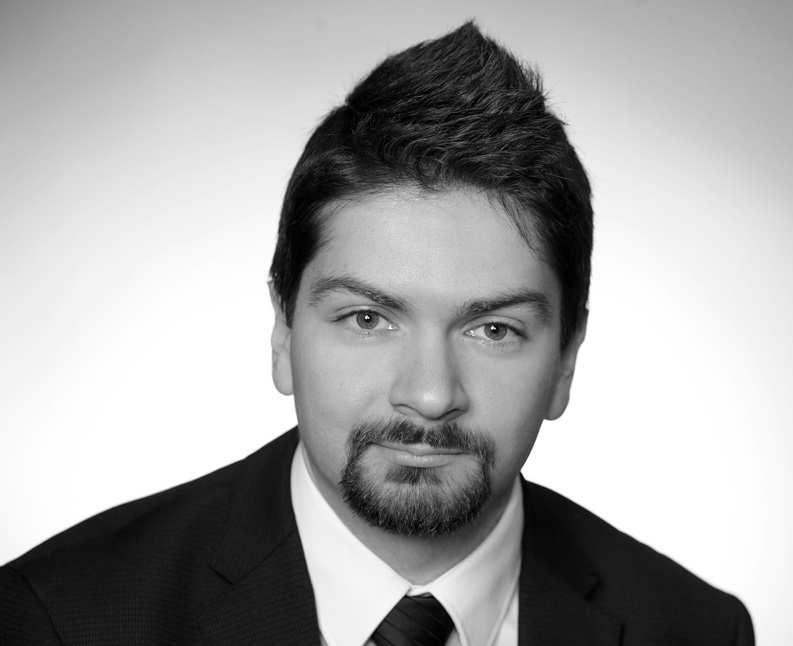 | Teodor Burburuzan
Leading communication engineer with Volkswagen in Wolfsburg, Germany
Dr. Teodor Burburuzan is a leading communication engineer with Volkswagen in Wolfsburg, Germany. He is currently responsible for designing connectivity solutions for connected car projects, and for integrating future communication technologies like IEEE 802.11p, C-V2X and 5G within the Volkswagen connectivity strategy.
Before joining the Connectivity department within the Technical Development group, he was active as a senior researcher within the Volkswagen Group Research working on topics addressing connected and automated driving. In this are he was active for over six years with a clear focus on both V2X and backend-based communication technologies for cooperative systems.
Dr. Teodor Buburuzan currently chairs the ETSI TC ITS WG1, and in the past acted as chair for the Roadmap and Profile working groups within the Car-2-Car Communication Consortium an an active contributor to various conferences and standardization activities.
Before joining the Volkswagen Group in 2010, Dr. Teodor Buburuzan obtained his PhD-Title on Heterogeneous Communication Networks from the Technical University in Braunschweig, Germany, and his Computer Science Diploma from the “Al.I.Cuza” University in Iasi, Romania. |
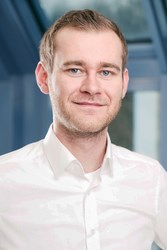 | Martin Buscher
Deputy Chairman of space technology at the department of aeronautics and astronautics at Technische Universität Berlin (TU Berlin)
Martin Buscher is the deputy of the chair of space technology at the department of aeronautics and astronautics at Technische Universität Berlin (TU Berlin). He received his diploma degree in electrical engineering from RWTH Aachen, Germany, and his master’s degree in mechanical engineering from University at Buffalo, State University of New York, USA. His activities at TU Berlin include teaching, project management, satellite operations and frequency management.
Mr. Buscher has been involved in various projects and works in the field of frequency coordination and management. As the German coordinator for small satellite issues in ITU study groups, he participates in national, European and international study group meetings (ITU, CEPT, SFCG) to simplify the regulatory environment of small satellites. Additionally, he consults universities and other small satellite operators in the ITU filing processes. |
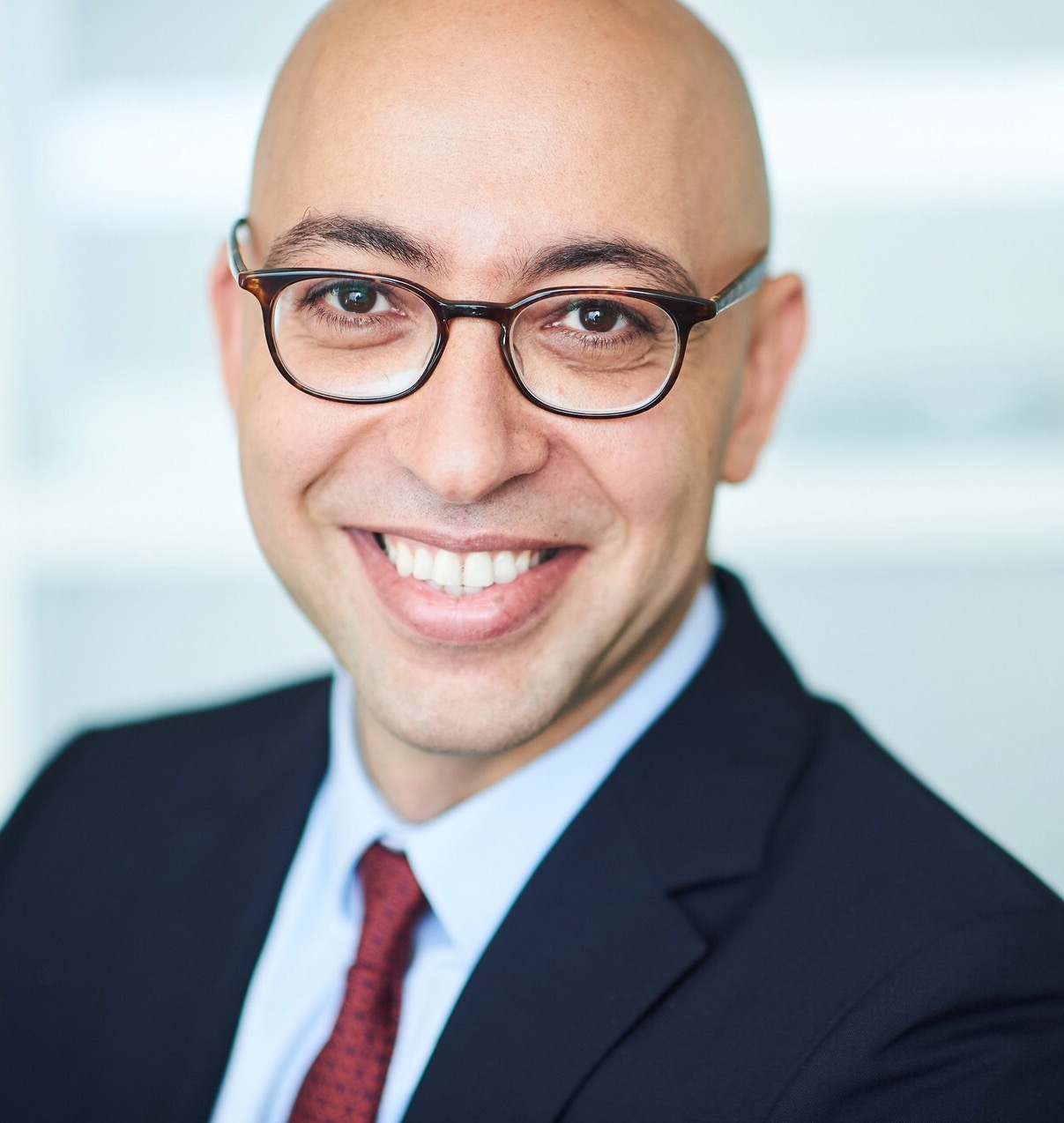 | Wassim Chourbaji
Vice President and Head of Government Affairs for Europe & MENA Qualcomm
Wassim Chourbaji is Qualcomm’s Vice President and Head of Government Affairs for Europe and the EU, Middle East and North Africa. He oversees Qualcomm’s public policy, regulatory affairs and senior government relations in the region.
He has been appointed member of the Ofcom Spectrum Advisory Board and is also the Chairman of TechUK Communication Infrastructure Council.
Mr Chourbaji studied engineering and mathematics. |
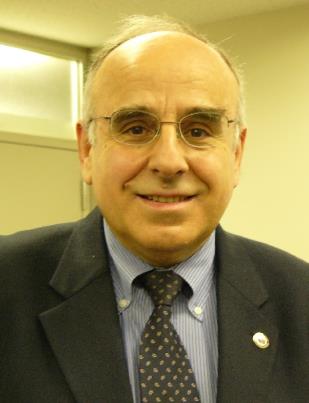 | Jose Costa
Director, Wireless Access Standards, Ericsson Canada, Inc.
Chairman, Working Party 5A
José M Costa received the Titles of Industrial Engineer (Electronics) and Dr. Industrial Engineer from the Universidad Politécnica de Barcelona, Spain, in 1971 and 1984, respectively, and the M.A.Sc. and Ph.D. degrees in electrical engineering from the University of Toronto, Ontario, Canada, in 1973 and 1982, respectively.
During 1977-1978 he held a fellowship in the Canadian Department of Communications (now Innovation, Science and Economic Development Canada) doing research on future communication services.
He joined Bell-Northern Research (BNR) Ltd., Ottawa, Canada, in 1978, which in the mid-1990s became part of Nortel, where he held several positions in systems engineering.
In January 2010 he joined Ericsson as part of the sale of Nortel wireless business and assets to Ericsson. He participates in the development of radio standards and spectrum recommendations in the ITU, where he is Chairman of Working Party 5A (land mobile service above 30 MHz (excluding IMT); wireless access in the fixed service; amateur and amateur-satellite services), and he participates regularly in the work of Working Party 5D (IMT systems), where he is the CITEL Rapporteur.
José has published over 30 technical papers in journals, conference proceedings and contributions in books, and he is a Senior Member of the IEEE |
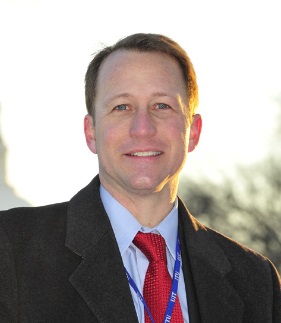 | Joseph Cramer
Regional Director, Regulatory Policy and International Spectrum Management, The Boeing Company, Washington, DC
Joe Cramer is the Regional Director, Regulatory Policy and International Spectrum Management for the Boeing Company in its Washington, DC office. He focuses on radio frequency spectrum regulatory and policy issues, particularly those relating to civil and military aviation. He has a bachelor’s degree in Mechanical Engineering, a Juris Doctor degree, and is pursuing a Masters in Business Administration during his “free” time. He began his career working for Several Members of the United States Congress where he focused on policy issues impacting the transportation sector. Subsequently, he worked for Rockwell Collins and then Lockheed Martin in their Washington DC offices leading government affairs efforts on technology and radio frequency spectrum policy and regulatory issues.
Joe is the aerospace industry representative to the ICAO Frequency Spectrum Management Panel. He represents Boeing’s international spectrum interests at the International Telecommunications Union, where he is the Chairman for the 2019 World Radiocommunication Conference Agenda Item relating to High Altitude Platform Stations. He is the Aerospace Industry Representative on the International Civil Aviation Organization Frequency Spectrum Management Panel. In the United States, he represents Boeing on spectrum issues before the Executive Branch. |
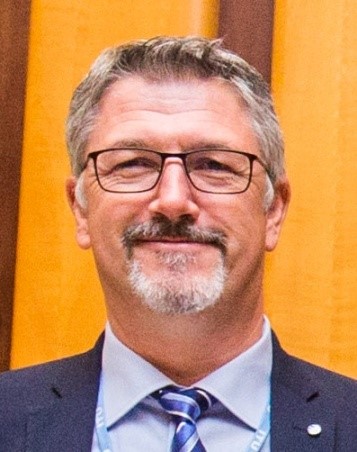
| Markus Dreis
Frequency Management of EUMETSAT
Markus received his engineering degree in telecommunications in 1994 and joined what is today called the Federal Network Agency (Bundesnetzagentur, BNetzA), the German authority for frequency regulations, in the international affairs section.
For several years (around 1998 - 2003) he chaired the CEPT Project Team SE19 (fixed service incl. compatibility with other services) and was in parallel vice-chairmen of the parent group “Spectrum Engineering” in CEPT.
He attended 6 WRCs with several CEPT-Coordinatorships and was Chapter Rapporteur for the CPM-Report 2003 and chaired the Sub-Working Group 5C at WRC-03.
After that he joined EUMETSAT, the “European Organisation for the Exploitation of Meteorological Satellites”, in October 2003 and took over the Frequency Management for EUMETSAT.
In the “family” of space agencies he co-chairs Special Working Group 3 (MetSat and remote sensing) of the Space Frequency Coordination Group (SFCG) since 2004, chaired WG-3 (Metsat and EESS communication bands) of ITU-R Working Party 7B for some years and he is a core member of WMO Steering Group for Radio Frequency Coordination (SG-RFC). Since 2016 he chairs ITU-R Working Party 7C on remote sensing systems.
His entire career is devoted to frequency management and since 2003 he enjoys working in/for the scientific community with the common goal to preserve the frequency spectrum resources required for MetSat and EESS systems. |
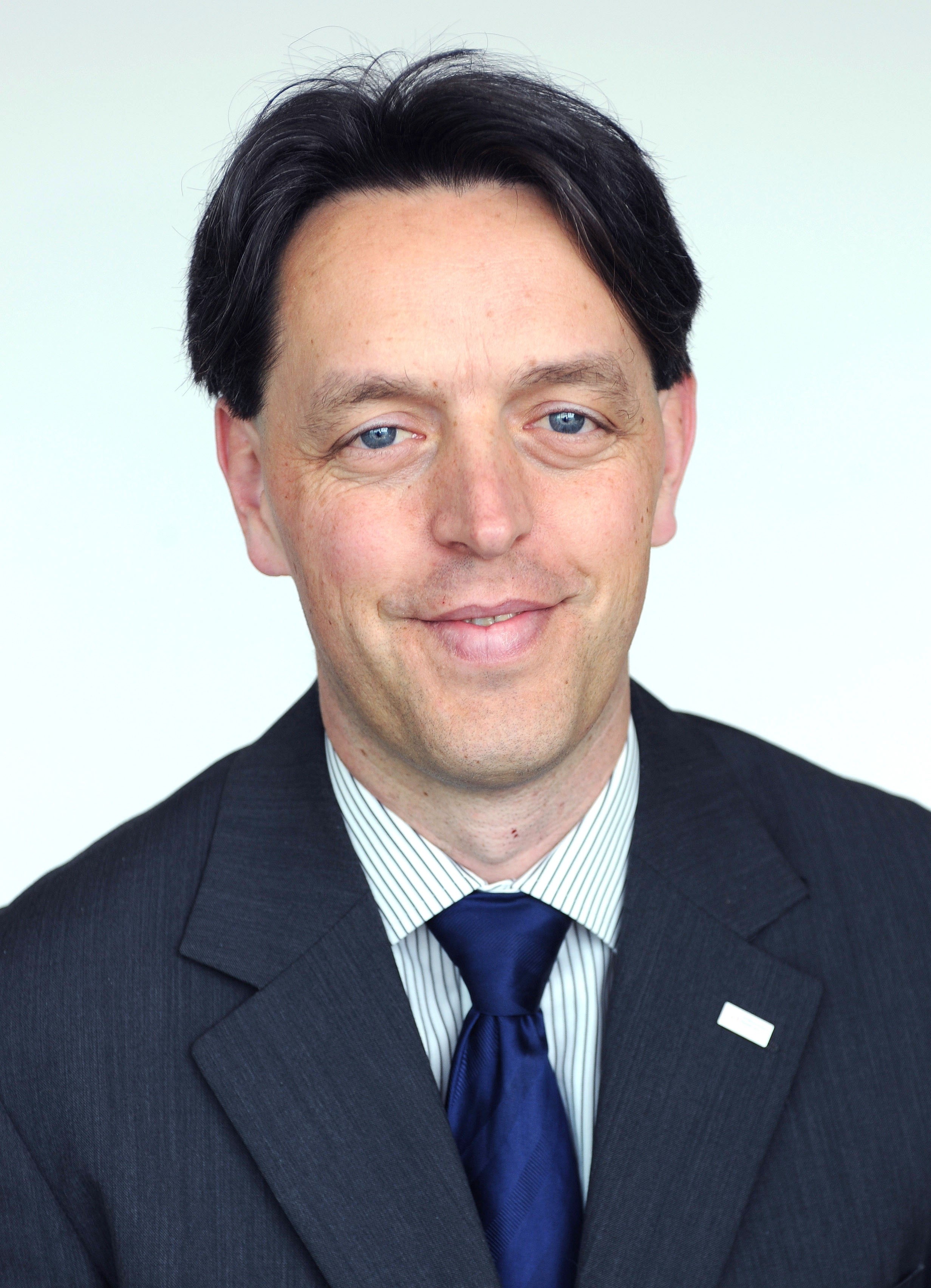 | Alexander Frötscher
Technology Adviser at AustriaTech in Vienna
Alexander Frötscher (male) born in 1969, works as Technology Adviser at AustriaTech in Vienna. Project coordinator of several EU R&D Projects (Coopers, Co-cities) and has been involved as project manager and partner.
EU ITS Architectures is one of his areas of expertise, extended in the E-Frame and Frame-Next project, in international conferences and workshops with stakeholders.
Additionally he has 5 years of work experience as innovation manager in the automotive industry and in setting up supply chains and distributed production networks.
Since 2015 he is member of the security WG of the C-ITS deployment platform of the EU. |
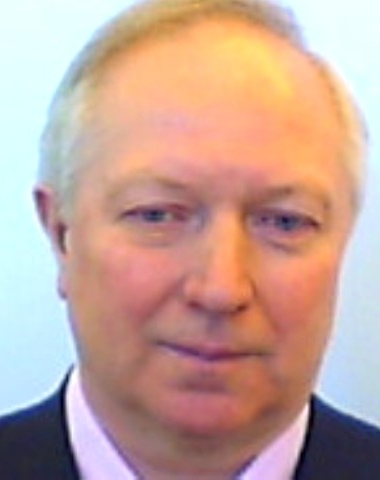 | Yuri Alekseevich Gromakov
General Director de OJSC “Intellect Telecom”
In 1971 he graduated from the Radio Faculty of Moscow Aviation Institute as a specialist in radio engineering. He is a professor, Grand PhD in engineering sciences, a laureate of the Russian Federation Government award in the field of science and technology. He headed the Committee of GSM Development Association, was a member of 3G Association Council, the vice-president of the National Radio Association of Russia.
From 1994 to 2008, he held the post of the vice president for technical issues and development in MTS. He developed the program "Strategic modelling of the telecommunications future", which became the basis for the establishment of the research and innovation centre of JSFC SISTEMA – “Intellect Telecom.”
From 2007 to 2012 he was the General Director of Intellect Telecom.
He is the author of three monographs, more than 200 scientific works in the field of creation and development of cellular and satellite communication systems, positioning systems for mobile objects, navigation, cognitive radio, Internet of things (IoT), electromagnetic compatibility of radio electronic facilities, etc. He is an author of more than 40 invention patents in Russia, Europe, the United States, China, India. |
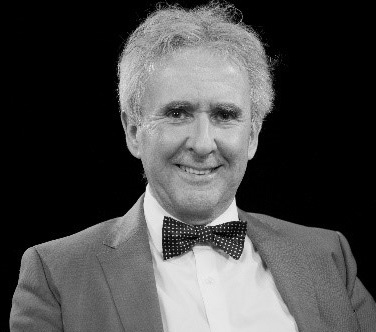 | Yvon Henri
Yvon Henri has been involved in the satellite business for more than 30 years and has held various high-level management positions in both the public and private sectors as well as in intergovernmental organizations at France Telecom (Paris, France), INTELSAT (Washington DC, USA) and the Radiocommunication Bureau of the International Telecommunication Union (ITU), in Geneva (Switzerland) where he was Chief of the Space Services Department (SSD) up to June 2017.
Throughout his professional career, Mr. Yvon Henri has always strived to initiate, develop and promote policies to enhance the opportunities afforded by the telecommunication/ICT sector, in particular for the global harmonization of space and terrestrial applications, with particular focus on the adaptation of space services to the constantly evolving world.
Mr. Henri is candidate from the French Administration to the post of member of the Radio Regulations Board of the International Telecommunication Union (ITU Plenipotentiary Conference, Dubai (29 October – 16 November 2018)) |
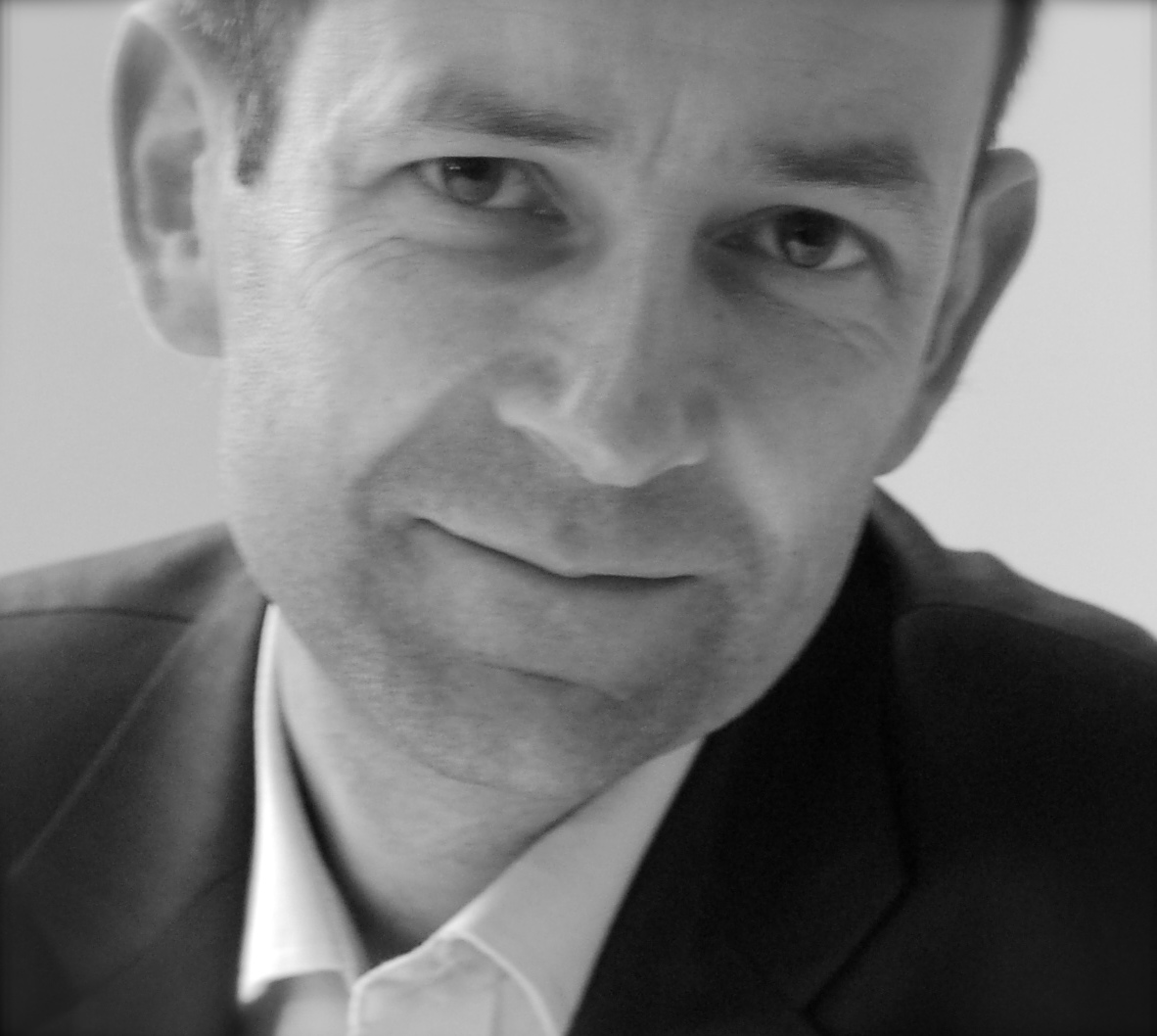 | Andy Hudson
Head of Policy, GSMA
The GSMA represents the interests of nearly 800 of the world’s mobile operators as well as more than 200 companies in the broader mobile ecosystem. Andy has global responsibility for spectrum and regulatory modernisation, as well as the regulatory and policy aspects of the future networks, IoT and identity programmes.
Previously, he was Director of Spectrum Policy at Ofcom for three years, where he led the Mobile Data Strategy, including the release and sharing of public sector spectrum for civil use, and the 2.3/3.4 GHz auction team. Before that, Andy spent 12 years at Vodafone, where he held various senior product development, corporate strategy and public policy roles. As Head of Spectrum Policy, he was responsible for managing spectrum policy and auctions across the Vodafone Group. He was frequently in Brussels and further afield supporting Vodafone’s local operating companies, and over four years he managed the acquisition or renewal of spectrum in over 20 countries for a total of €9.5bn.
In 2000, he was part of the senior management team which spun an internet payments and encryption company out of NatWest. He was formerly a management consultant and a research scientist at Sharp Laboratories of Europe and Sony Corporation, based in Japan.
He has a doctorate in Engineering Science from Oxford University and an MBA. He is married with two boys (17 and 14) and lives in a small village close to Oxford. |
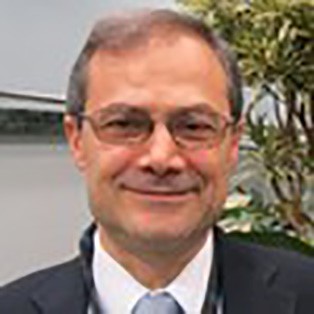 | Raffi Khatcherian
Head of the International Spectrum Management at EUROCONTROL
The European Organisation for the Safety of Air Navigation
Raffi Khatcherian is a Senior ATM Expert and the Head of EUROCONTROL International Spectrum Management.
As the SESAR Spectrum Project Manager, he developed the Aeronautical Spectrum Strategy and Vision. Head of EUROCONTROL delegation at WRC-15.
He is the Secretary of Aeronautical Spectrum Frequency Consultation Group (ASFCG), Spectrum Management Group (SMG), ASFCG-IG Interference Group and Aeronautical Radio Interference Analysis group (ARIA).
Before joining the International Spectrum Management, Raffi Khatcherian supported many EUROCONTROL member States in their ATM modernisation programme. |
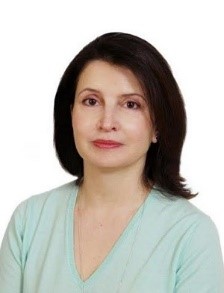 | Yulia Klebanova
Qualcomm VP Business Development, Eastern Europe
Yulia Klebanova, Qualcomm VP Business Development, Eastern Europe, leads the office since 2015 and keeps responsibility for mobile ecosystem development in the region, LTE-A roll-out and 5G testing at leading MNO’s networks, framing new usage models for wireless services suppliers and subscribers, Qualcomm technologies promotion at corporate and consumer segments.
Yulia has 20 years of experience at telecom industry. Yulia was invited for government accounts manager position to Intel corporation in 2002, where she was promoted to regional corporate accounts director role in 2005.
Earlier on Yulia was responsible for cooperation with leading operators at Lucent Technologies and driving sales and marketing at NTV Internet.
Yulia was graduated from North-West Saint-Petersburg polytechnic institute, has radio engineering specialty and keeps MBA diploma in Banking and Finance from Dowling College of Oakdale, New York. |
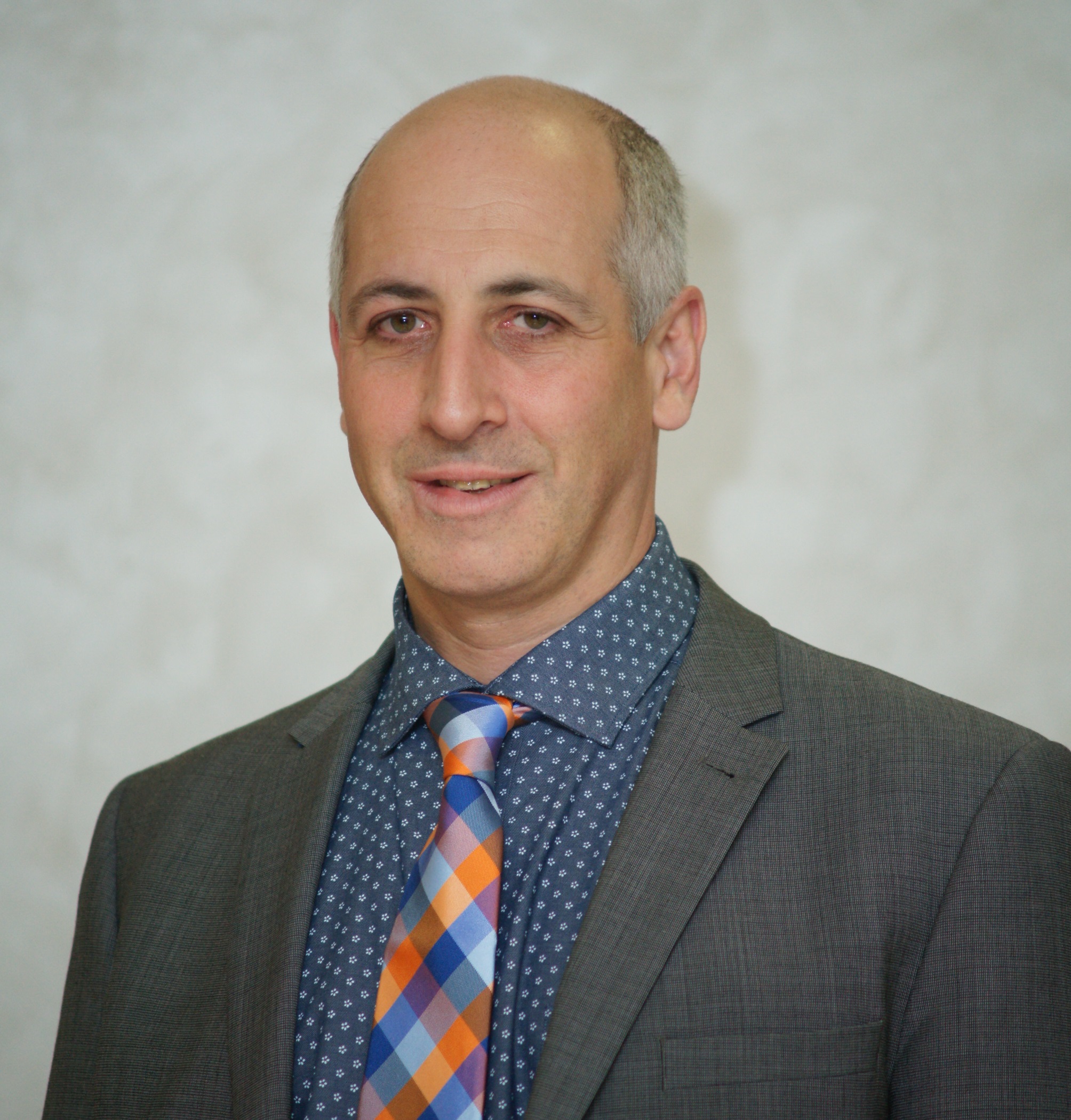 | Leonid Konik
Editor-in-Chief of all media published by ComNews Group
Transparency Council Member at Rostelecom
Leonid Konik was born on February 28, 1970 in St.-Petersburg, Russia. In 1995 got his Masters Degree in Computer Science at Peter the Great St.-Petersburg Polytechnic University.
On February 1995 joined “Business Petersburg” newspaper (owned by Bonnier Business Press of Sweden) and worked there until June 1998 (the last positions – Editor of News Department and Editor of “Information Technologies” weekly supplement).
In July 1998 became a co-founder of ComNews Group. From that moment and up to now Leonid Konik is acting Editor-in-Chief of all media published by ComNews Group. From March 2015 he became a Group CEO as well.
Leonid Konik is also a Partner with ComNews Research - research and consulting arm of ComNews group, and a constant moderator of various ICT forums in Russia and abroad, including the events produced by ComNews Conferences.
From November 2007 to May 2011 Leonid Konik acted as "Tele2 Russia" Advisory Board Member, and from December 2013 up to now he is the Transparency Council Member at Rostelecom. |
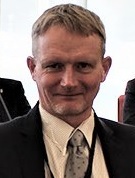 | Philip Lane
Technical Officer for Comité International Radio-Maritime (CIRM)
Philip Lane has been Technical Officer for Comité International Radio-Maritime (CIRM) since March 2017, and in that role, represents CIRM members in matters relating to bridge navigation systems and maritime communications at IMO, ITU, IEC, ETSI and MED meetings. He also chairs the CIRM working groups on maritime cyber security, radio communications and type approval.
Philip previously worked for 16 years for Pole Star Space Applications Ltd, a fleet tracking and LRIT service provider, as a Hardware Development Engineer and Project Manager. Previous roles include Earth Station Engineer (C and KU band), Corporate Communications Network Supervisor and Test Technician for underwater fibre optics communications systems.
Philip has a degree in Mathematics from Bristol University, UK. |
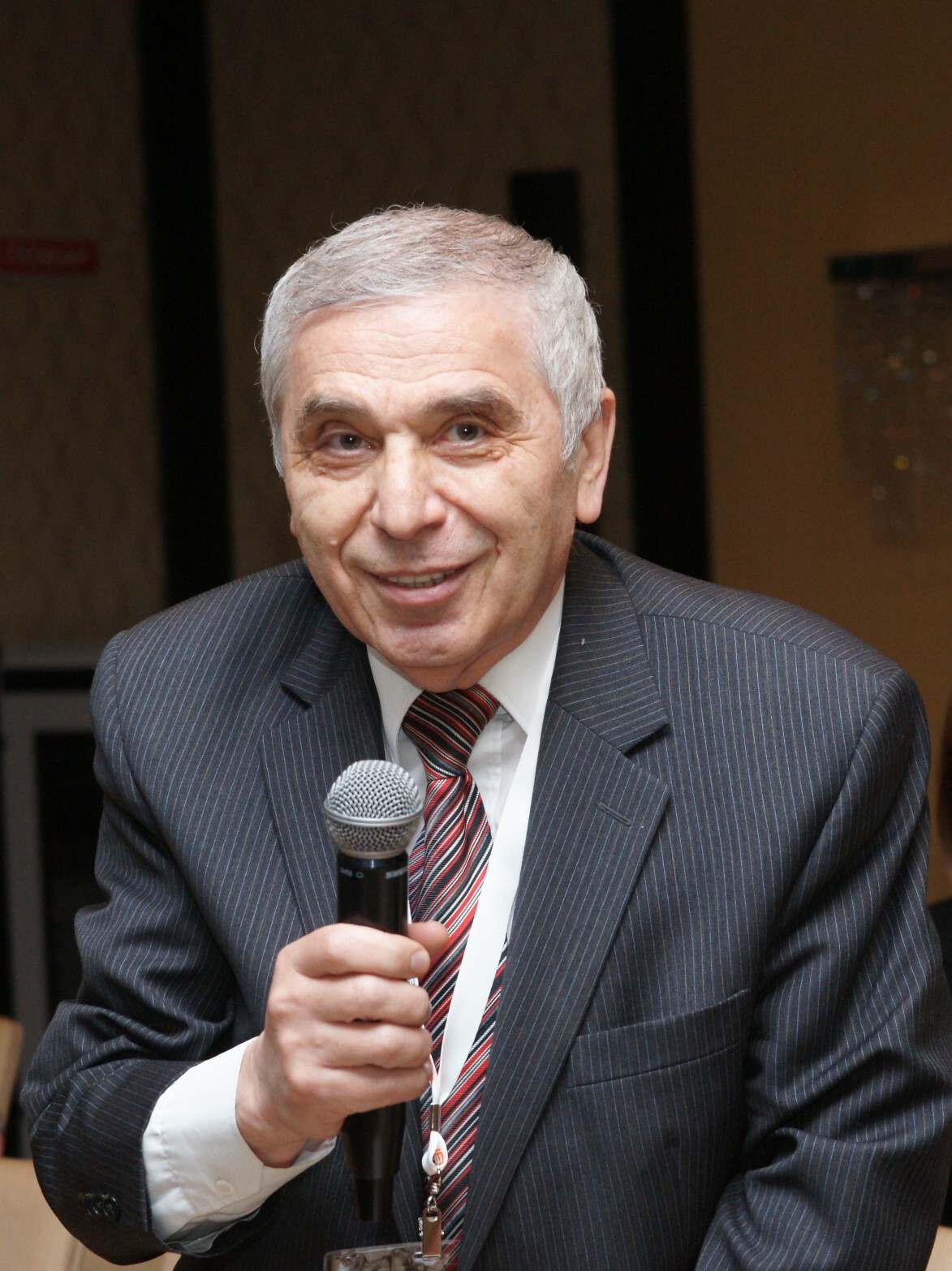 | Boris Lokshin
Head of the RSCC department for advanced structural developments
After graduating from the Moscow Technical University of Communications and Informatization (former Moscow Institute of Telecommunications) in 1968 Mr.Lokshin started to work in the “NII Radio” Institute (Scientific and Research Institute for Radiocommunications) belonging to the Ministry of Communications as an engineer, junior research assistant, senior staff scientist, head of sector. His activity was in the fields of satellite broadcasting. He participated in design of the “Moskva” satellite TV distribution system delivering TV signals over all the Russian territory, and “Moskva-Global” system with the same goal but in the extended coverage area.
In 1998 Boris Lokshin was invited to the “Bonum-1” company, the first Russian private company owned and operated its own “Bonum-1” DTH satellite ordered from Boeing. His position was a head of systems department and later a technical director. With its three uplink stations the company provided uplinking TV programs for different broadcasters including “NTV-Plus” company. He was responsible for the uninterrupted transmission of TV programs.
In 2003 the company was inserted into RSCC (Russian Satellite Communications Company, FGUP “Kosmicheskaja svjaz” in Russian) – the government civilian satellite operating company - as its branch.
Mr.Lokshin worked in that branch as a technical director until July, 2009. Since Aug.1, 2009 he is working in the main office of RSCC as a head of the newly created department for advanced structural developments. The primary task of this department is to coordinate efforts of different divisions (commercial division, space segment division, earth stations operation division and others) in designing future satellites and the ground segment in order they correspond each other. |
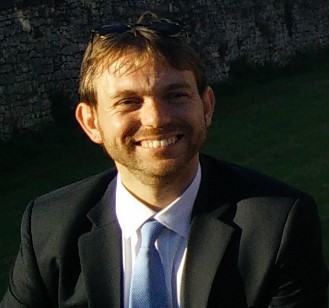 | Mario Neri
Director, International Coordination for Telesat International Limited
Mario Neri is Director, International Coordination for Telesat International Limited, a London-based fully-owned subsidiary of Telesat Canada. In this role, Mario supports all activities of Telesat that involve maintaining the spectrum and orbital resources of the company for both its GSO networks and non-GSO systems. He also represents Telesat in the relevant national and international fora (including the CEPT and ITU) where he influences spectrum policy and develops business opportunities for Telesat.
Prior to Telesat, Mario was Manager, International Satellite Frequency Coordination at Ofcom, the independent telecommunications regulator of the United Kingdom. In that role, he was responsible for overseeing all UK satellite filings and for supporting all relevant activities to shape and develop a number of space policies in the UK. Also at Ofcom, Mario had responsibility for representing the UK at WRC-15 for all matters related to satellite telecommunications.
Mario also worked for Inmarsat (London, UK), where he helped develop the regulatory framework for Earth Stations on Mobile Platforms (ESOMPs – a.k.a. ESIM). He also was at Eutelsat (Rambouillet, France), where he held the position of Monitoring Systems Engineer.
Mario holds a BSc. and a MSc. in Telecommunications Engineering from the University of Pisa (Italy) and a MSc. in Finance and Investment from CASS Business School, part of City, University of London (UK). |
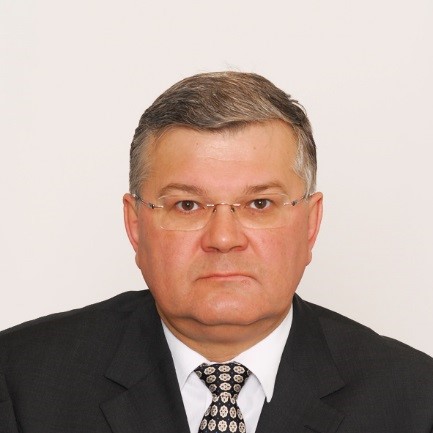 | Vadim Nozdrin
Study Groups Department, Radiocommunication Bureau, ITU
Since 2010, Vadim Nozdrin is Counselor of ITU-R Study Groups, in particular dealing with operational and technical aspects of systems for remote sensing and space research, operating on both ground-based and space-based platforms, as well as airborne and maritime communications. Before, he has been working on technical and regulatory aspects of satellite coordination at Space satellite Department of ITU’s Radiocommunication Bureau since 2000.
Before he started his career at ITU, he held posts in the Radio Research and Development Institute (NIIR) ranging from engineer to Deputy Director General. He has been involved in many telecommunication and spectrum management studies at international level, particularly within ITU-R SG 1, ITU-D SG 2, CEPT, RCC since 1992.
He has a degree in telecommunication engineering (1988), and a PhD in telecommunication economy (1998) from the Moscow University of Telecommunication and Information. He is co-author of three books on different aspects of spectrum management and author of about 60 articles in scientific articles and conference proceedings. |
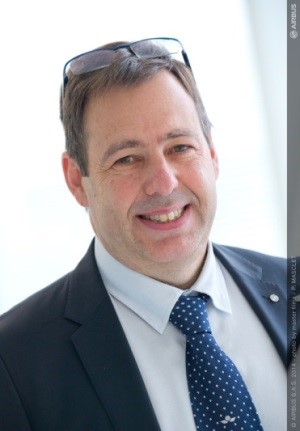
| Claude Pichavant
Senior Expert – Communication & Surveillance
An extensive career in the field of Civil Airborne communications and surveillance systems with over 30 years’ experience on all Airbus aircraft models.
Claude has been actively involved in the international standards for commercial aviation, representing Airbus at the ARINC-AEEC-SAE (Aeronautical Radio, Incorporated- Airlines Electronic Engineering Committee- Society of Automotive Engineers), as well as at EUROCAE and RTCA (Radio Technical Commission for Aeronautics).
Since 2007, his representation of the air transport industry has enabled him to further develop solid working relationships with ; Single European Sky ATM Research( SESAR); the International Civil Aviation Organization and the International Telecommunications Union (ITU) Radio Communication Sector.
As a member of the French Delegation, Claude participated to the World Radio Communication Conferences held in 2012 and 2015. He has contributed to the ATTF (Aircraft Tracking Task Force) which was established by the IATA (International Air Transport Association).
Claude is also an active member and contributor of the International Coordinating Council of Aerospace Industries Associations (ICCAIA) and has thus contributed to the 2015 High-Level Safety Conference on the Global Flight Tracking topic, and still contibuting to the ICAO Frequency Spectrum Management Panel (FSMP) and to the Global Aeronautical Distress and Safety System GADSS - Advisory Group as ICCAIA advisor.
Finally he was recently nominated as the Airbus representative in the ARINC/SAI Working Group (Systems Architectures and Interfaces) and also as Airbus AEEC alternate at the AEEC Executive Committee. |
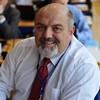
| Christian Rissone
Working for the French government in the ANFR (Agence Nationale des Fréquences, French Frequency Agency), in charge of the spectrum management on an international level for the maritime service
Former Navy officer, he has served 21 years in the French Navy as a signal officer. Through various services on frigates, sub-marines and aircraft-carriers, he has developed a great expertise on all the communications systems used by the maritime community. He retired from the Navy in 2001 with the rank of Commander.
Since 1998 he his working for the French government in the ANFR (Agence Nationale des Fréquences, French Frequency Agency), first as a military and then as a civilian; he is currently in charge of the spectrum management on an international level for the maritime service.
He is the Chairman of the Joint IMO/ITU expert group and the technical secretary of the Electronic Communications Committee of the European Conference of Postal and Telecommunications Administrations (CEPT). |
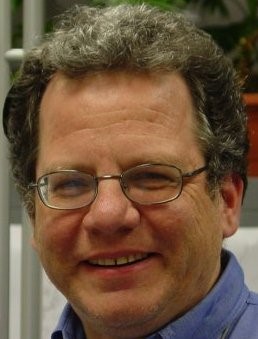 | David Rothbaum
Solution Architect in the Mission Critical and Private LTE organization within Ericsson
David Rothbaum is a Solution Architect in the Mission Critical and Private LTE organization within Ericsson. He specializes in providing the railway industry with connectivity solutions using 4G and 5G for railway operational applications. He is Ericsson delegate on ETSI Railway Communications working group tasked to define the Future Railway Communications System (FRMCS) to replace GSM-R as well as Ericsson delegate on European Communications Commission working group to determine the spectrum for FRMCS in Europe.
David holds a B.A.Sc. degree in Electrical Engineering from the University of Toronto and a M.Sc. degree in Management from Boston University. |
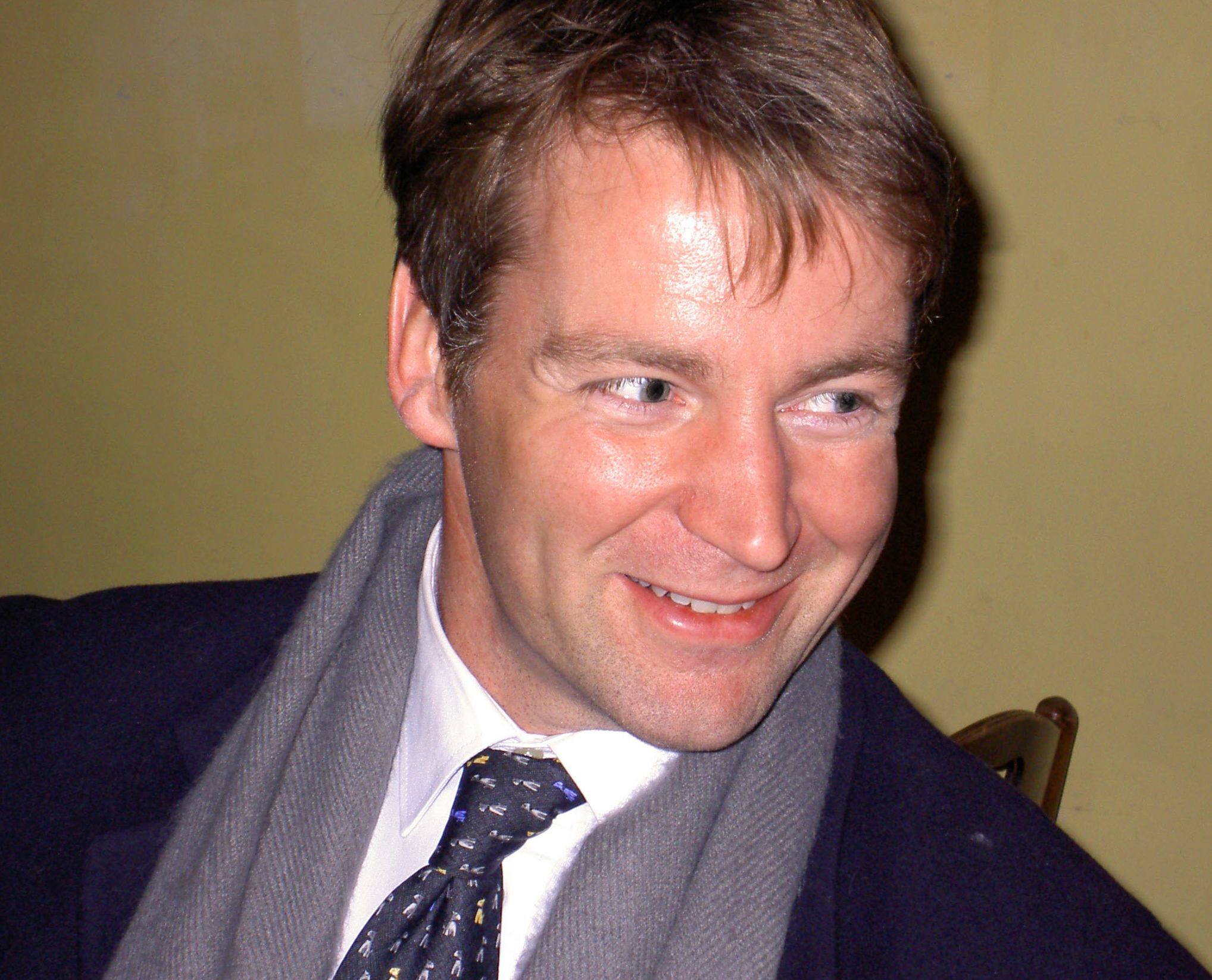 | Michael Sharpe
Director of Spectrum and Equipment Regulation, ETSI
Michael Sharpe received his PhD from the University of Essex in the UK. Since then, he has worked at BBC Television, Ford Motor Company and the UK Radiocommunications Agency before joining ETSI in 1995. At ETSI he has occupied several roles, including Vice-President of ETSI Standardisation Projects, Director of Technical Strategy and most recently Director of Spectrum and Equipment Regulation.
In his current role, Michael Sharpe is responsible for ensuring effective co-operation of ETSI’s technical activities with the work of key regulatory bodies and partner standards bodies at the National, European and Global level. His current priorities include working with the European Commission to ensure the smooth introduction of the Radio Equipment Directive, and the continuing close co-operation with CEPT and the Commission Radio Spectrum Unit to ensure that ETSI Harmonized Standards and Regulations on radio frequency use are developed in a co-ordinated and effective manner.
ETSI is a producer of globally applicable standards for Information and Communications Technologies (ICT), including fixed, mobile, radio, converged, broadcast and Internet technologies. ETSI is officially recognized by the European Union as a European Standards Organization, and produces Harmonized Standards which allow self-declaration of conformity against European regulatory requirements. ETSI standards help ensure the free movement of goods within the single European market and help to boost industrial competitiveness. |
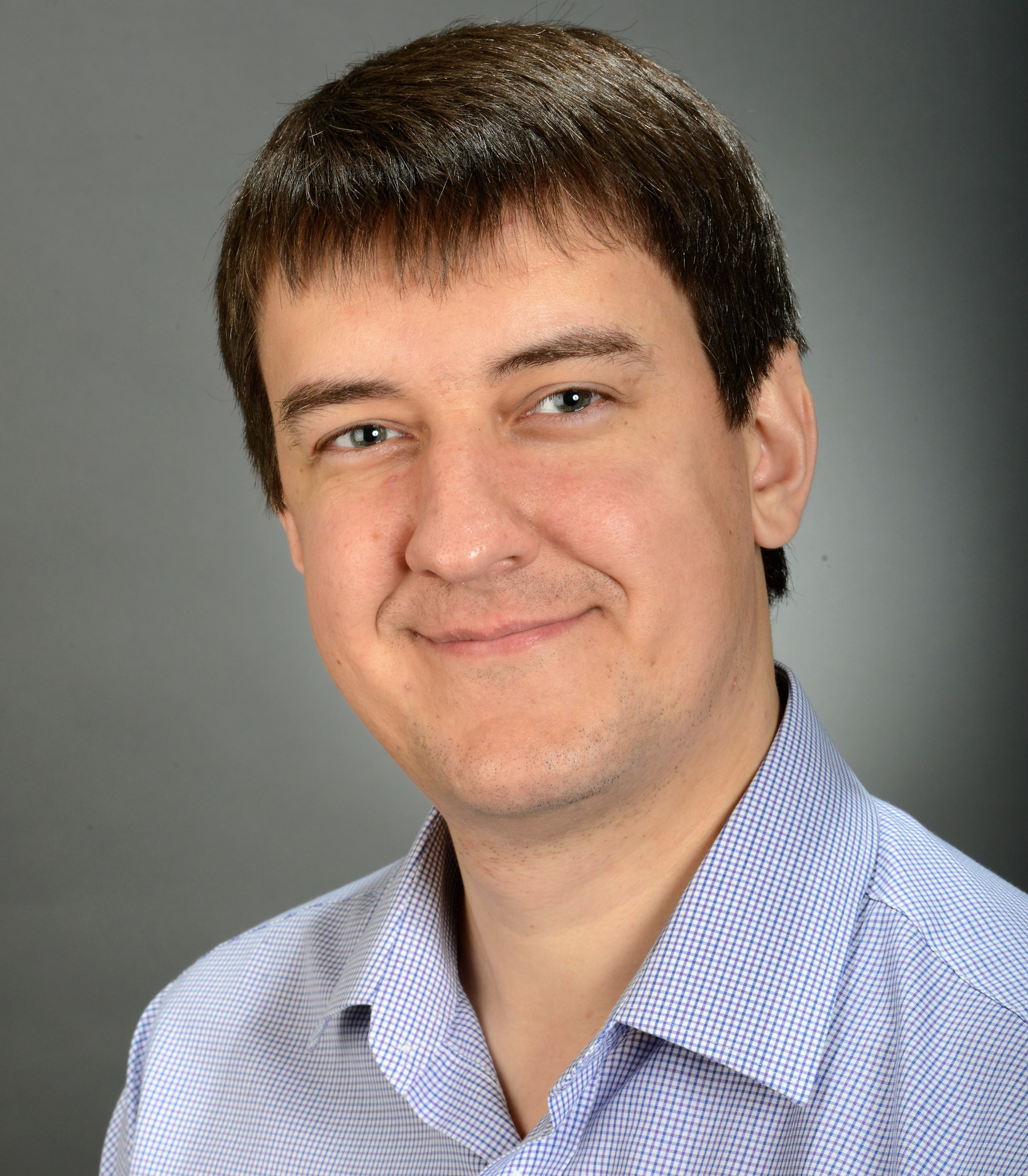 | Vladislav Shpilevoi
General Director at Iridium Communications LLC, Russia
Vladislav is General Director at Iridium Russia, a subsidiary of a global mobile satellite communications company called Iridium. He is responsible for the licensed operator serving the Russia geographical market and the local ground station. Since joining Iridium in 2013 Vladislav has actively participated in launching the company services in Russia, established the business processes and systems, hired team members, supported the Russia Gateway construction program. As General Director Vladislav is responsible for coordinating the local team, achieving business unit performance and budget targets, compliance with the local laws and regulations as well as global firm policies, liaison with the Russian authorities.
Prior to Iridium Vladislav worked with KPMG Advisory department in Moscow leading the financial advisory, accounting and IT projects with Russian customers and global companies for 7 years. Vladislav holds a degree in Economics and Management from Ural State Technical University in Russia.
Iridium, a publicly traded company in the United States (“IRDM”), is the world’s only truly global mobile satellite communications company, with voice and data solutions covering every inch of the Earth’s surface. |
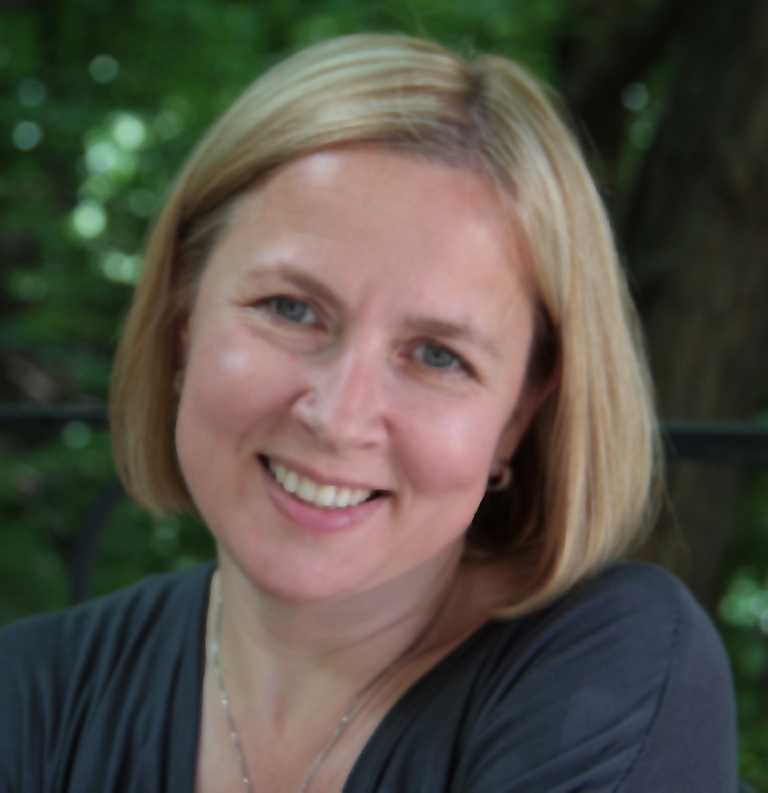 | Lidia Varukina
Head of Technology, Nokia East Europe
Lidia Varukina, Head of Technology, Nokia East Europe, is a member of GSA Spectrum Group coordinating GSA activities within RCC.
Lidia possesses Ph.D. degree in the field of telecommunications, she is with telecom industry for nearly 30 years and gained broad expertise in various areas, including digital signal processing, HW and SW development, radio network planning.
In the field of regulation, she participated in ITU-R activities on behalf of the Communication Administration of the Russian Federation for 2000-2006.” |
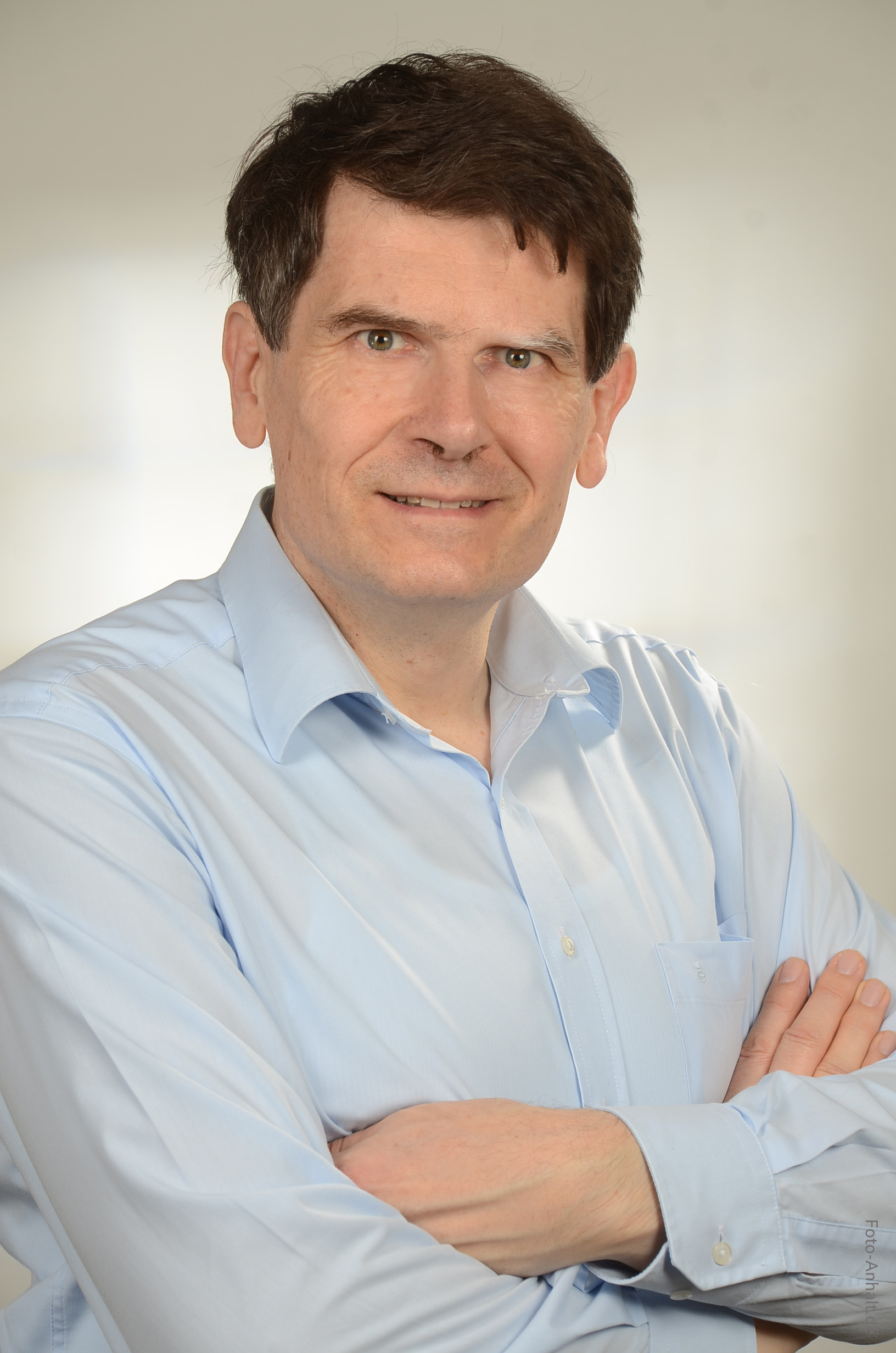 | Hans-Karl Von Arnim
Frequency Expert
In 1992 von Arnim joined the German waterway administration for a trainee program. After finalizing in 1994 the program with the second state examination he moved to
the Federal Maritime and Hydrographic Agency and served there as type approval inspector for electronic charts. In this position he was involved in the first IMO type approvals for Electronic Chart and Information Systems (ECDIS).
Since 1996 he is actively participating in the international standardization within the International Electrotechnical Commission for digital interfaces and ECDIS, Marine Radar Systems and Communication Equipment for the GMDSS. In 2000 he was promoted to the head of radio location and radio communication. In this position he is supervising the testing of Marine Radar and Automatic Identification systems (AIS).
Since 2003 he joines the work of ITU Working Party 5B as maritime expert for the Germany Administration in the field of radio determination and communication. He participates in the IMO work at the subcommittee COMSAR, now NCSR in the field of maritime Communication for many years. During the World Radio Conference 2012 he served as CEPT Coordinator for the Agenda Item “Consideration of regulatory provisions and spectrum allocations for use by enhanced maritime safety systems for ships and ports” and during the study cycle 2015 he was the CEPT coordinator for the Agenda Item of VEDS. |
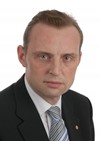 | Thomas Weber
Expert for spectrum management and Chairman of the WG FM Maintenance Group on Short Range Devices of the European Communications Office of the CEPT
Mr. Weber joined the European Communications Office of the CEPT in 2010 as expert for spectrum management and is the chairman of the WG FM Maintenance Group on Short Range Devices (SRD/MG – this includes ITS and Urban Rail applications). He is also responsible for the frequency management project teams in the WGFM dealing with the ECO Frequency Information System (EFIS), PMR/PAMR, railway applications, direct-air-to-ground communications and the European Common Allocations Table.
Before that, he worked for the Federal Network Agency in Germany in 2001-2010 and was the chairman of several ETSI standardization groups dealing with ITS, PMR, DMR, GSM-R and UWB as well as the chairman for the DIN/DKE German National standardization committee on radio devices. He also worked several years for several satellite operators and in the industry in satellite communications.
He holds a degree in Communications Engineering acquired at the University of Applied Sciences in Dieburg, Germany. |
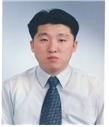 | Hong-Sun Won
Deputy General Manager of Korea Rail Network Authority(KR), Electronic communication Division, Radio Communication System Dep.
Mr. Won has been working for Korea High Speed Rail Construction Authority and Korea Rail Network Authority in the railway Information & communication field since 1996. He has been involved in railway Information & communication system maintenance and construction such as design, installation and test and Commissioning for various kinds of railway.
The major projects he was involved in are:
- The Azerbaijan Railway Improvement Feasibility Study
- Seoul-Busan high-speed(KTX #1) project supervisor in Information &Telecommunication
- National Railway System Engineering master plan desing
- Design and supervisor, maintenance projects in the Korea national railway(Over 10 Projects)
- Responsible for LTE-R SYSTEM Implementation in Korea railway
Mr. Won is Member of the following Professional Societies:
-
Korean Information & Communication Engineering Association “Technical Specialist”(Regd. No: 101200800439L)
- Korean Information & Communication Engineering Association “The chief supervior” (Regd. No: 110200800603SL)
-
Human Resources Development Service Of Korea “ The first grade of Engineer Radio Telecommunication”(Regd. No: 98202010253D)
-
TTA(Telecommunication Technology Association) WG9051sdfsdf
Mr. Won holds a B.S. degree, in Electronic Engineering Won-Kwang University, an M.Eng degree, Electronic Information Telecommunication Engineering, in Chung-Nam National Industrial University and a PhD in Railway Engineering, in Woo song University. |
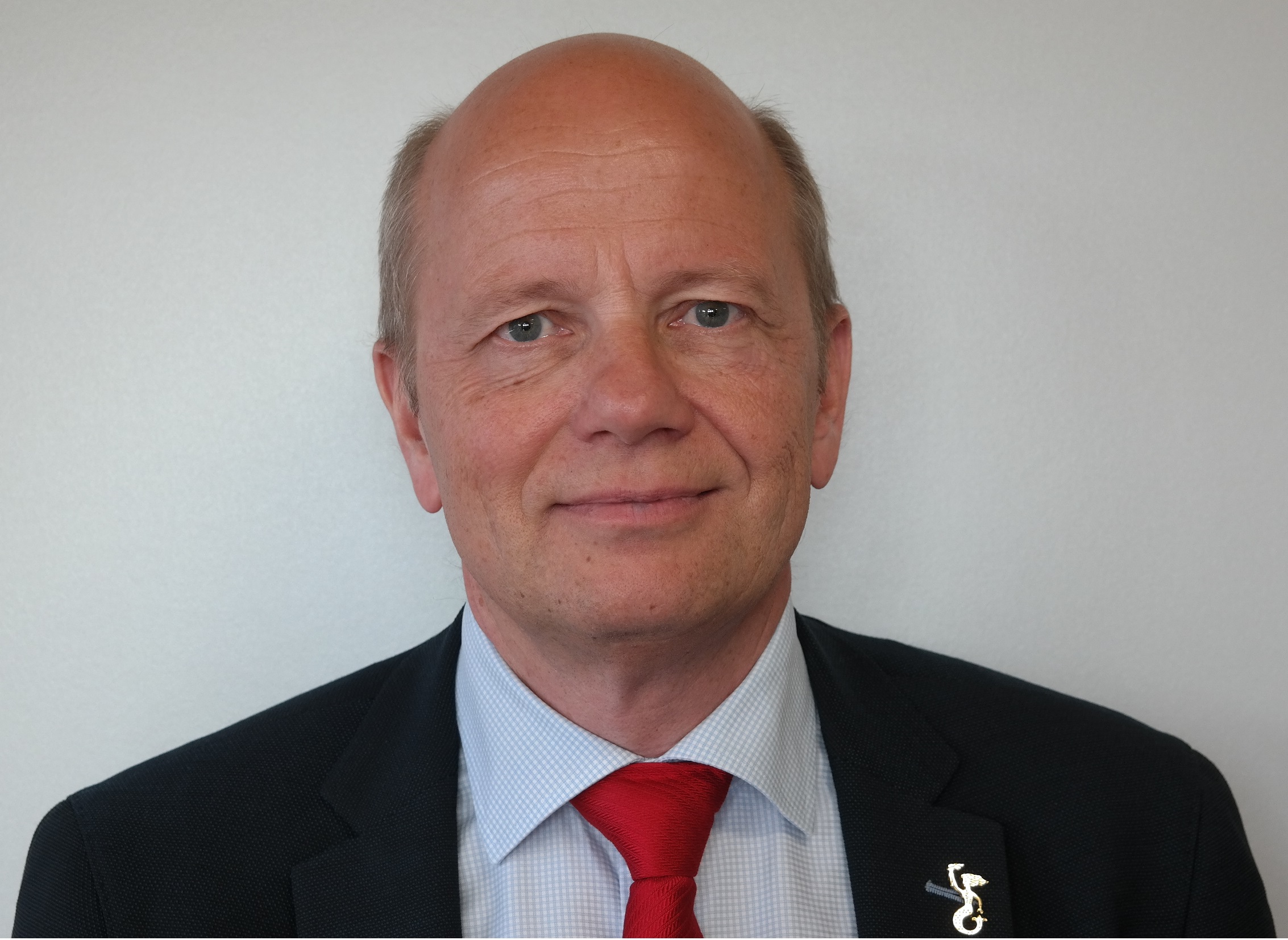 | Francis Zachariae
Secretary-General of the International Association of Marine Aids to Navigation and Lighthouse Authorities (IALA)
Francis Zachariae began the work as Secretary-General of the International Association of Marine Aids to Navigation and Lighthouse Authorities (IALA) February 2015.
Francis Zachariae has a background from the Royal Danish Navy, the Ministry of Defence, the EU Council Secretariat and the Danish Maritime Authority where he was the Deputy Director General. He is educated from the naval Academy, from Collège Interarmées de Défense in Paris and has a Master of Science, Public Administration.
Francis Zachariae is residing in St. Germain en Laye, France where lives with his wife Jane. They have two grown up sons.
About IALA
Established in 1957, IALA enables marine aids to navigation authorities, manufacturers, consultants, and scientific and training institutes from all parts of the world to exchange and compare their experiences, achievements, and technical and operational policies via participation in IALA Technical Committees. The Committees work to create IALA Recommendations and Guidelines which are recognised worldwide as the international standards for the implementation and operation of aids to navigation. These standards help to ensure that the movements of vessels are safe, expeditious, cost effective and harmless to the environment. |